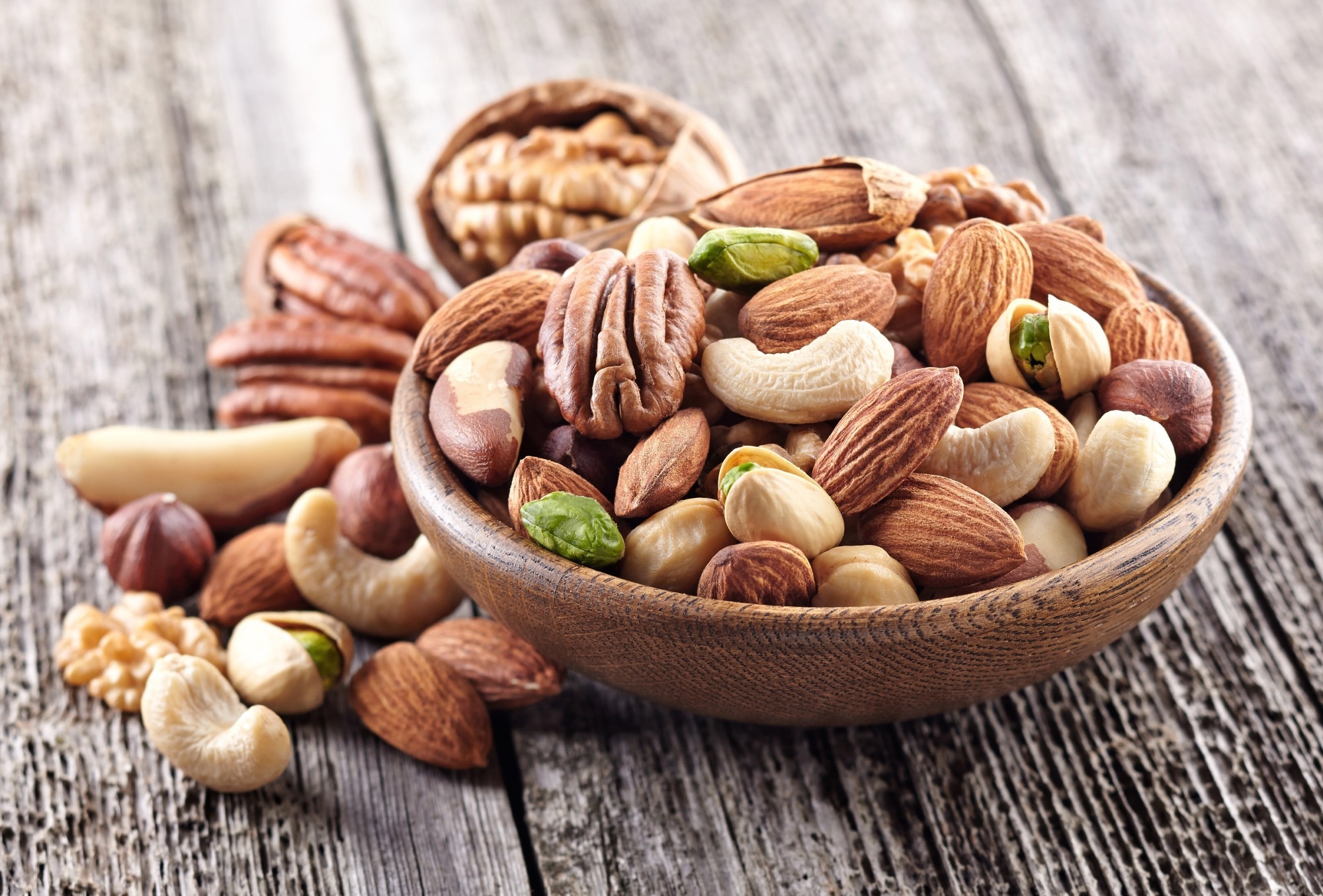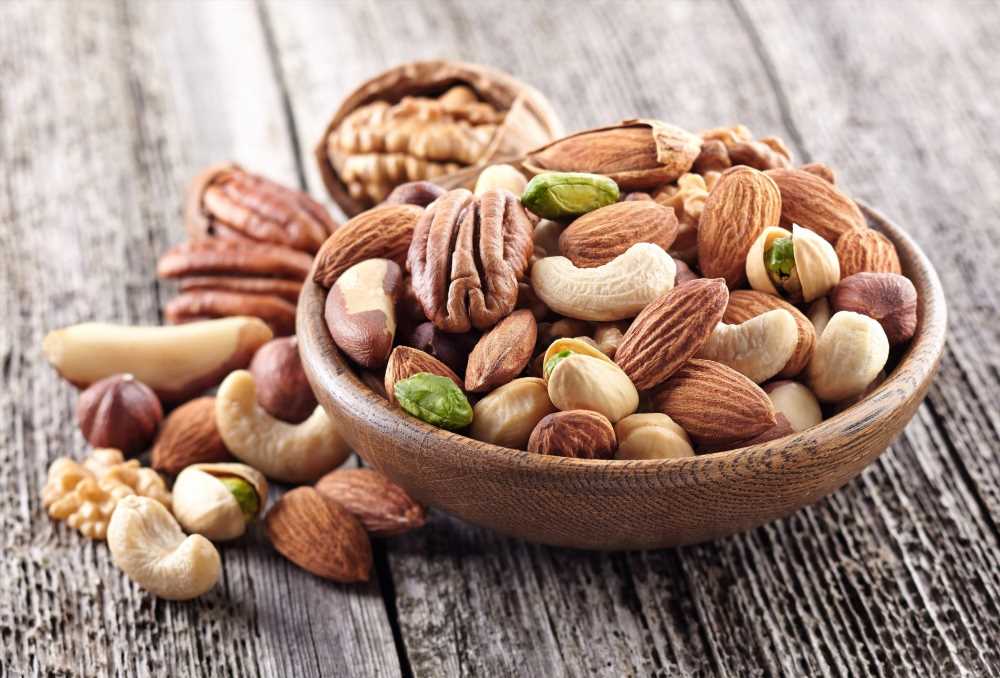Frailty is an accompaniment of aging, being defined as “an increasing vulnerability to stressful events because of the depletion in functional reserves.” Older adults living in the community at large are often frail, with a prevalence of over 10% in wealthier countries. A recent study explored the potential for reducing frailty in older women by increased nut consumption.

Women and those in long-term care are especially prone to frailty, and, therefore to falls, disability, poor tolerance to surgery and mortality, and requiring more medical care with higher medical expenses. Moreover, frailty reduces the ability to participate in daily life and its social structure, reducing the quality of life.
Introduction
Frailty could be related to poor dietary quality. The Mediterranean diet is known to be associated with better health outcomes. It includes nuts, which contain multiple healthful nutrients such as polyunsaturated fats, phytochemicals with anti-inflammatory properties, and essential vitamins.
There have been few studies on the association between nut consumption and the risk of frailty. The current observational study, published in The Journal of Nutrition, aimed to investigate such a relationship, if it exists.
The study was carried out in a prospective manner on women in the Nurses’ Health Study (NHS) who were not frail at the time of the beginning of the study and were all over 60 years of age. They came from 11 US states. The researchers looked for new incidents indicating frailty over the 14-year follow-up period, when the cohort was assessed every four years.
Frailty was defined using FRAIL (fatigue, lower strength, reduced aerobic capacity, multiple chronic conditions and significant weight loss), with four components from the following list being necessary:
- Fatigue
- Lower strength
- Reduced aerobic capacity
- Multiple chronic conditions
- Significant weight loss
Omics eBook

Food questionnaires were used to arrive at nut intakes, both total and individual. The total nut consumption was classified as 1 serving/month, 1–3 servings/month, 1 serving/week, 2−4 servings/week, and ≥5 servings/week. Adjustments were made for age, smoking, body mass index, dietary quality using the Alternate Healthy Eating Index (AHEI), and the use of other medications.
What did the study show?
At baseline, about a third of the population was borderline frail (“prefrail”, with ≥1 FRAIL components)
The study indicates that the risk of frailty emerging among older women was reduced by a fifth among those with the highest intake of nuts compared to the lowest. That is, older women who had five or more servings of nuts a week, on average, were at 20% lower risk for new frailty compared to those with less than one serving a month.
Among the nuts, increased peanut and walnut intake was associated with reduced frailty, but not that of peanut butter. Women who ate ≥2 servings/week of peanuts and walnuts had a ~15% reduction in their frailty risk, compared to those who had <1 serving/month.
With increasing nut consumption, the frailty risk showed a linear decrease. This corroborates existing and recent evidence on the benefits of nut intake on aging and improving or maintaining the function, promoting healthy aging. Skeletal muscle mass has been shown to improve with nut consumption, probably due to its promotion of protein synthesis and prevention of protein degradation. This could explain part of the beneficial effects, at least.
Unsaturated fats are found in nuts in plenty and could improve the lipid profile, thus promoting cardiovascular health and metabolic function. This could delay a decline in aerobic capacity. Walnuts are rich in alpha-linolenic acid (ALA), an essential omega-3 fatty acid, which is a powerful anti-inflammatory compound.
Nuts are also dense energy sources, preventing weight loss when used as part of a high-quality diet. Older people typically reduce their food intake, and nuts could help fill up the energy gaps while preventing obesity due to their satiety-inducing effects. Obesity is related to frailty, especially when muscle mass and strength are reduced.
What are the implications?
The consistent linkage between the regular intake of nuts and reduced frailty is striking, in view of the prospective nature of the study. Nuts are a simple way to introduce healthful foods into the diet in association with a reduction in frailty risk.
Broader studies are required to validate these findings, however, earlier studies on a number of areas have been shown to be broadly generalizable across ethnic and racial groups.
This suggests that nut consumption should be further tested as a convenient public health intervention for the preservation of health and well-being in older adults.”
- Wang, R. et al. (2023). Long-Term Consumption of Nuts (Including Peanuts, Peanut Butter, Walnuts, and Other Nuts) in Relation to Risk of Frailty in Older Women: Evidence from a Cohort Study. Journal of Nutrition. doi: https://doi.org/10.1016/j.tjnut.2023.01.003. https://www.sciencedirect.com/science/article/pii/S0022316623005060?via%3Dihub.
Posted in: Medical Science News | Medical Research News | Women's Health News | Disease/Infection News
Tags: Aging, Alpha-Linolenic Acid, Anti-Inflammatory, Body Mass Index, Butter, Chronic, Compound, Diet, Disability, Fatigue, Food, Mortality, Muscle, Nutrients, Nutrition, Obesity, Omega-3 Fatty Acid, Protein, Protein Synthesis, Public Health, Smoking, Surgery, Vitamins, Walnut, Weight Loss

Written by
Dr. Liji Thomas
Dr. Liji Thomas is an OB-GYN, who graduated from the Government Medical College, University of Calicut, Kerala, in 2001. Liji practiced as a full-time consultant in obstetrics/gynecology in a private hospital for a few years following her graduation. She has counseled hundreds of patients facing issues from pregnancy-related problems and infertility, and has been in charge of over 2,000 deliveries, striving always to achieve a normal delivery rather than operative.
Source: Read Full Article
